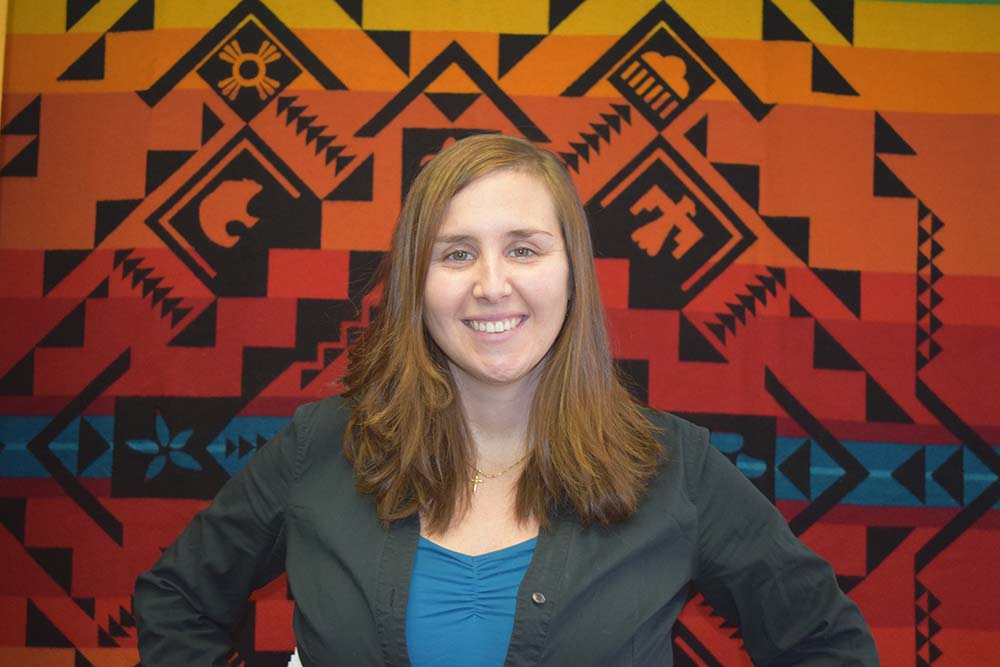
- Details
- By Chez Oxendine
- Economic Development
LONGMONT, Colo. — A new unrestricted philanthropic grant could prove to be “game changing” for Oweesta Corporation.
That’s according to Krystal Langholz, the chief operating officer of the Longmont, Colo.-based Native-led nonprofit, which serves as an intermediary for Native community development financial institutions (CDFIs).
Oweesta received the $500,000 unrestricted grant from the John D. and Catherine T. MacArthur Foundation in late July, which Langholz described as a “hefty” sum for an organization with an annual operating budget of roughly $3.7 million.
Want more news like this? Get the free weekly newsletter.
“For us to be invited and recognized and included by a foundation the size and caliber of MacArthur, that’s very exciting for us,” Langholz said. “More than that, it was the nature of the funding that was surprising and transformative. It’s unrestricted operating capital, which is pretty much unheard of. That gives us a lot of flexibility to scale our existing projects, to allocate how we need it most. That’s pretty revolutionary for us.”
The grant to Oweesta was part of a $16 million round of MacArthur Foundation grants that focused on Native self-determination. The funding was distributed to 15 Native-led organizations, including Cambridge, Mass.-based advocacy group Cultural Survival, Billings, Mont.-based Intertribal Agriculture Council, Albuquerque, N.M.-based American Indian Law Center and Berkeley, Calif.-based Covenant Tribal Solar Initiative, among others.
For Oweesta, the unrestricted funds will allow it to scale up its current initiatives through new hiring and training, Langholz said. The organization is currently working on developing a COVID recovery fund with Native CDFI partners, building a counseling network focused on Native housing, and creating training programs for Native CDFI certification.
“We just have these really big initiatives that we’ll be able to scale up,” Langholz said. “These are massive programmatic efforts on our part.”
Meanwhile, Covenant Tribal Solar Initiative will receive $775,000 in grants to support operating costs toward building out and supporting clean energy systems.
“The MacArthur Foundation is making significant investments to combat climate change, placing a new emphasis on its impacts on BIPOC communities," Chéri Smith, founder of Covenant Tribal Solar Initiative, said in a statement. "We are honored that the Foundation has recognized the importance and urgency of our mission to empower Native American tribes to develop and deploy renewable energy to restore their self-reliance.”
Between federal funding and philanthropy funds such as the MacArthur grant, Covenant’s plans over the next year include developing residential, commercial, and utility-scale projects totaling more than 3 megawatts of electricity on the Northern Cheyenne Reservation, along with an undisclosed amount on the Standing Rock Sioux Reservation.
“This funding supports critical efforts to ensure that the regenerative results of solar energy deployment will ignite a systems-level change in the economic and social conditions in our Native communities, leading to a restoration of our self-reliance, and of hope,” said Otto Braided Hair, a Northern Cheyenne tribal member and executive director for Covenant Tribal Solar Initiative.
‘A moment or a movement’
The grant awards continue a string of high-profile, multi-million dollar donations to Native-led nonprofits in early and mid-2021.
Many such gifts have been unrestricted or marked for operating capital, giving the recipients the ability to allocate their resources where they’re needed. That infusion of unrestricted funds marks a renewed and growing trust in Native-led organizations to best understand the needs of their communities, Langholz said.
“To have that trust that we know how to help the communities we work with is pretty exciting,” she said, noting that “five years ago, if we’d gotten a $25,000 check, we would have been running down our offices going, ‘Woo! We can make the loan!’”
However, Langholz views the uptick in dollars flowing into Indian Country with cautious optimism.
“I think we’re hopeful and excited to see philanthropic resources coming to communities that have been systematically marginalized,” Langholz said. “I think also we’re waiting to see if that energy continues and if that will be institutionalized into the broader framework of philanthropy.”
Langholz’s caution stems from a long history of philanthropic underinvestment in Native causes, which can be chalked up to a range of issues including tribal sovereignty and prejudice against Native borrowers and financial managers.
“A lot of organizations and philanthropists just don’t know how to work in Indian Country,” Langholz said. “Part of Indian Country’s challenge is that we’re outside of philanthropic footprints. A lot of those community foundations (and grantmakers) are urban-focused, which means there’s not a focus on rural communities. You exacerbate that with confusion around tribal sovereignty, and then you have institutionalized racism. We’ve seen the idea that maybe Native communities wouldn’t be as good financial stewards. We’ve found that not to be true, of course, but there’s those perceptions out there.”
Amid civil upheaval and a greater nationwide focus on racial equity, Langholz said that having more philanthropy focused on Native organizations is great, but she wants to know if it’s going to last.
“Right now, we’re all excited, but we’re concerned about the question of: Is this a moment or a movement?” Langholz said. “Is this just a response to broader racial equity conversations in our country? If so, that’s great, but how do we sustain that?”
